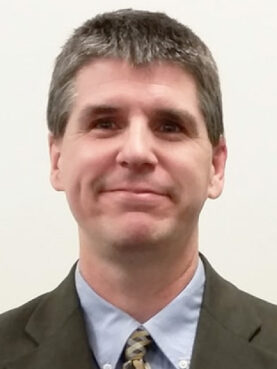
(RNS) — Professional degrees are gaining traction at theological schools across the U.S. and Canada, while the traditional ministerial degree, the master of divinity, is faltering, according to new data released late last month.
But Chris Meinzer, senior director and chief operation officer of The Association of Theological Schools, noted that overall enrollment at ATS schools has remained stable and that the master of divinity degree isn’t dying. Instead, he said, the M.A. degree is appealing to more students.
The Association of Theological Schools, an umbrella organization with over 270 member schools, reported an uptick in doctor of ministry and other professional doctoral programs designed to enhance a minister’s practical skills.
Based on enrollment numbers reported by nearly 90% of schools, projected enrollment for doctoral and similar programs in 2022 was 12,300 students, a 4% increase from fall 2021 and a notable 24% increase from fall 2018, according to the ATS.
The Master of Arts degree, a two-year program that trains students for a wide range of professions, including doctoral studies, nonprofit work and lay ministry, has also seen a subtle increase of 1% since fall 2021, and 5% since fall 2018, according to fall 2022 projections. The ATS reports that enrollment in M.A. programs is now on par with enrollment in master of divinity programs for the first time in ATS history, according to fall 2022 projections.

Chris Meinzer. Photo courtesy of ATS
The master of divinity degree — a three-year program typically chosen by students pursuing ordination — continues to decline. The projected enrollment for fall 2022 is 28,000 master of divinity students, a 4% decrease from fall 2021 and 9% decline since fall 2018. Master of divinity programs still constitute 35% of enrollment at theological schools overall, per fall 2022 projections. That’s a significant decline from the 43% of total enrollment for master of divinity degrees a decade ago.
Meinzer said several factors steer students toward Master of Arts programs. In some Christian contexts, he said, the master of divinity is no longer required for ordination. The two-year degree may also entice students over the typically three-year master of divinity degree because it requires less time and less of a financial investment. Others might be attracted to specific master’s degree programs.
“There is lots of creativity happening within our schools,” Meinzer pointed out. Fuller Theological Seminary in Pasadena, California, for instance, added a fully online Master of Arts in Justice and Advocacy program in fall 2021.
Overall enrollment at theological schools remains steady, an impressive feat, noted Meinzer, amid changing religious trends and demographic challenges in higher education. Still, 57% of ATS schools reported declining enrollment, a sharp rise from 2020, when 46% of ATS schools showed enrollment decreases.
Meinzer pointed to schools’ pivot to online classes as one reason. He said roughly 95% of ATS schools went completely online in 2020. The return to in-person study could be negatively impacting enrollment.
The new ATS data is evidence of broader changes in North America’s religious landscape. Many theological schools are adapting to meet the needs of students claiming spiritual identities apart from religious institutions. This spring, Graduate Theological Union, a 60-year-old consortium of California seminaries and religious study centers, launched a new online learning hub for interreligious activism in which students can study online and pay little or no tuition. In October 2021, Hartford Seminary in Connecticut rebranded as Hartford International University for Religion and Peace, a name that better reflects the school’s offerings. The school does not offer a master of divinity program and hasn’t ordained clergy since the 1970s.
As theological institutions look to the future, Meinzer urged schools to continue to innovate to meet the needs of today’s evolving religious scene.
“The world is changing, and we need leaders who can serve that changing world,” he said.
